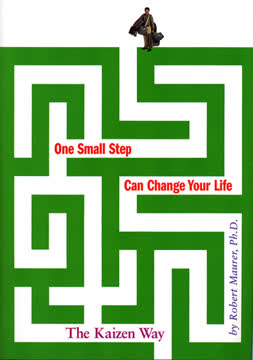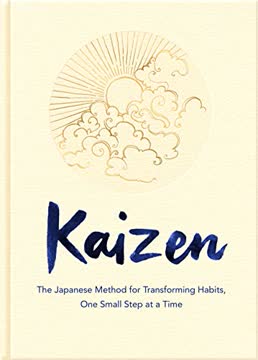Key Takeaways
1. Ikigai: The Japanese concept of life's purpose
Whatever gets you up in the morning is your ikigai – and no one can tell you otherwise.
Definition of ikigai. The Japanese word ikigai combines "iki" (life) and "gai" (value or worth), representing the value of life or happiness in life. It's not necessarily a grand life purpose, but rather the joy found in daily living. Ikigai is deeply personal and can vary greatly from person to person.
Cultural context. In Japan, ikigai is not taught formally but understood through life experiences. It's a multifaceted concept that allows for an infinite number of responses. The focus on daily life (seikatsu) rather than lifetime (jinsei) distinguishes ikigai from Western notions of life purpose.
2. Finding joy in everyday moments
By having ikigai at each stage in our lives, hopefully we can look back at our life as a whole and feel content.
Appreciation of small details. Japanese culture emphasizes attention to detail and living in the present moment. This mindset allows people to find joy and ikigai in simple, everyday things. Examples include:
- Enjoying seasonal changes
- Appreciating fleeting beauty (e.g., cherry blossoms)
- Finding meaning in daily rituals
Language and culture. The Japanese language reflects this attention to detail with specific words for different times and seasons. Haiku poetry and traditional customs like hanami (cherry blossom viewing) further illustrate the cultural emphasis on appreciating momentary beauty.
3. Work as a source of ikigai
If you can't find meaning in your work, it will be difficult for you to see work as your ikigai.
Work-life integration. While work can be a source of ikigai, it's not the only or primary source for many Japanese people. A survey showed that only 31% of respondents considered work as their ikigai. However, finding meaning in work can contribute significantly to overall life satisfaction.
Motivation at work. Japanese workers often find motivation in:
- Being thanked or appreciated
- Successfully accomplishing tasks
- Feeling useful to others
- Seeing the impact of their work
4. Ikigai beyond career: Hobbies, family, and personal growth
Ikigai is not something you practise but something you find.
Diverse sources of ikigai. People find ikigai in various aspects of life, including:
- Hobbies and leisure activities
- Family and relationships
- Personal growth and learning
- Volunteering and community service
Active pursuit. Ikigai often involves action and engagement rather than passive enjoyment. It's about actively pursuing interests and making conscious choices to engage in fulfilling activities.
5. The role of curiosity in discovering ikigai
I believe the only way to find your ikigai is to have a continuous dialogue with yourself.
Self-reflection. Discovering ikigai requires ongoing self-examination and awareness of one's feelings and motivations. This involves asking questions like:
- Why do I enjoy certain activities?
- What stirs strong emotions in me?
- What am I naturally curious about?
Openness to new experiences. Japanese culture values curiosity and openness to new ideas. This mindset facilitates the discovery of ikigai by encouraging exploration and learning throughout life.
6. Job crafting: Aligning work with personal values
Job crafting is about finding room for creativity and a continuous experimentation.
Concept of job crafting. This involves actively shaping one's job to better align with personal strengths, interests, and values. It can include:
- Changing tasks or responsibilities
- Altering relationships at work
- Reframing perceptions of work
Practical steps. To craft your job:
- Examine current work habits and feelings
- Identify small changes that could increase satisfaction
- Experiment with these changes
- Reflect on the results and adjust accordingly
7. Ikigai as a guiding principle in decision-making
Knowing my ikigai allows me to make otherwise difficult decisions.
Decision framework. Understanding one's ikigai provides a clear framework for making life decisions, both big and small. It helps prioritize what truly matters and provides courage to make significant changes when necessary.
Long-term perspective. Ikigai encourages a focus on long-term fulfillment rather than short-term gains. This perspective can lead to more satisfying and authentic life choices.
8. The importance of connection and contribution
I feel ikigai when I make positive influence on people through my writing.
External focus. Ikigai often involves connecting with and contributing to the external world. This can manifest as:
- Helping others achieve their goals
- Sharing knowledge or skills
- Creating something of value for others
- Building relationships and communities
Balance of giving and receiving. While personal enjoyment is important, many find deeper fulfillment in giving to others or contributing to society.
9. Adapting ikigai throughout life's stages
Ikigai is not something you find overnight, but I think the key is to take action.
Evolution of ikigai. A person's ikigai can change over time as they grow and experience different life stages. It's important to regularly reassess and adapt one's understanding of ikigai.
Flexibility and openness. Being open to new possibilities and willing to adapt can help maintain a sense of purpose and fulfillment throughout life's changes, such as career transitions or retirement.
10. Practical steps to uncover your ikigai
Looking back at your life to pick up the clues and trying to connect them may give you insights into what your ikigai might be.
Self-reflection exercises. To discover your ikigai, consider:
- Reflecting on childhood interests and memorable life moments
- Identifying activities that bring joy and fulfillment
- Examining what you do without external motivation
- Considering what you'd pursue even if others didn't understand
Time management. Pay attention to how you spend your time and what activities energize you. Prioritize activities that align with your ikigai and bring a sense of purpose.
Continuous exploration. Finding ikigai is an ongoing process. Remain curious, try new things, and be open to discovering new sources of meaning and fulfillment throughout your life.
Last updated:
Review Summary
Ikigai receives mixed reviews, with readers appreciating its exploration of finding purpose and joy in daily life. Some praise its concise presentation and inspiring interviews, while others criticize its lack of depth and perceived endorsement of workaholism. The book's aesthetics and cultural insights are commended, but some find the content repetitive or superficial. Many readers appreciate learning about the Japanese concept of ikigai, though opinions vary on its practical applicability. Overall, the book is seen as a quick, thought-provoking read that encourages self-reflection and mindfulness.
Similar Books








Download PDF
Download EPUB
.epub digital book format is ideal for reading ebooks on phones, tablets, and e-readers.




